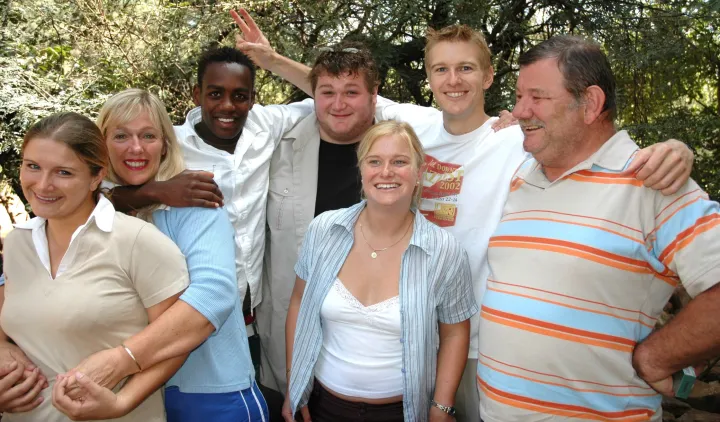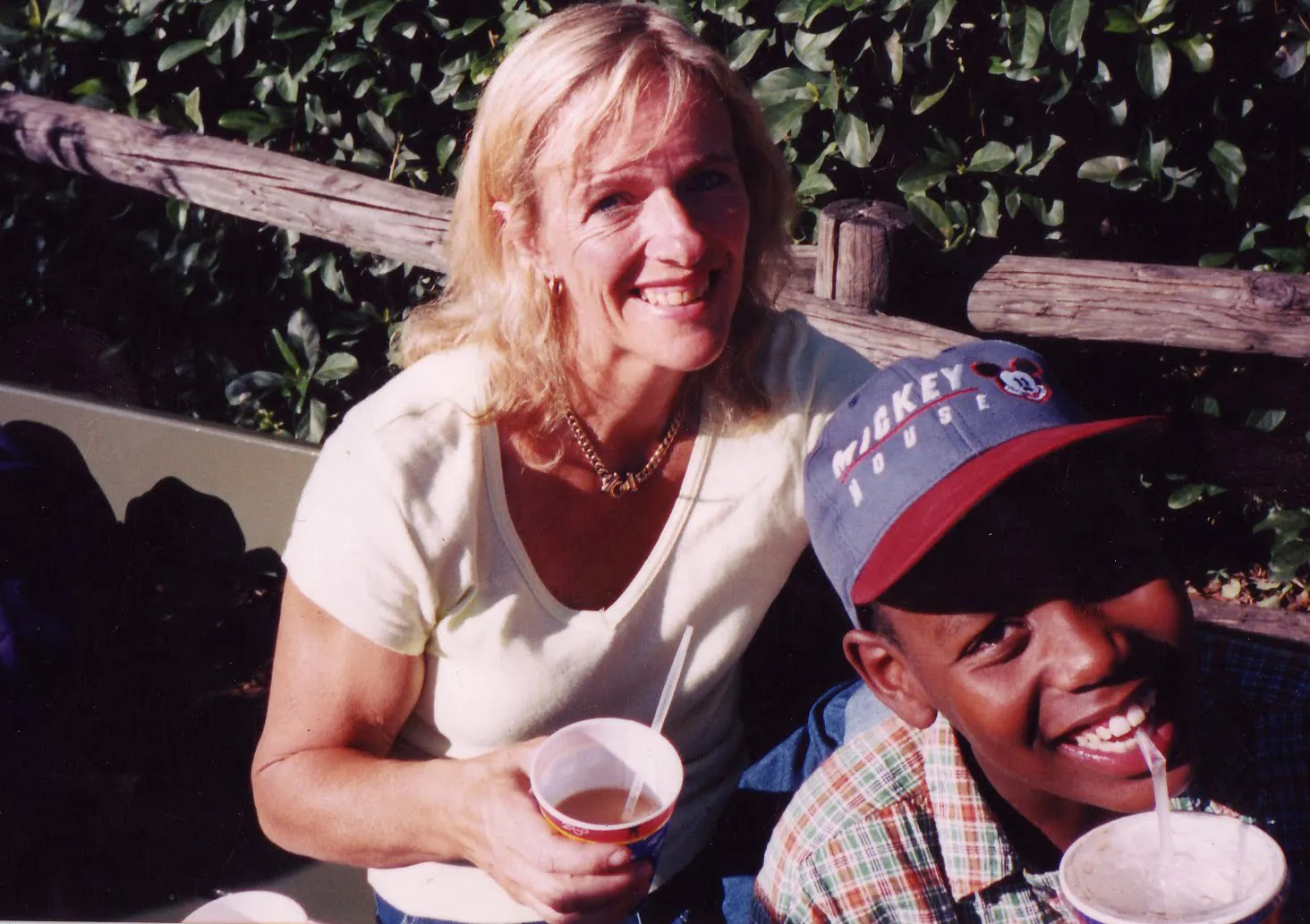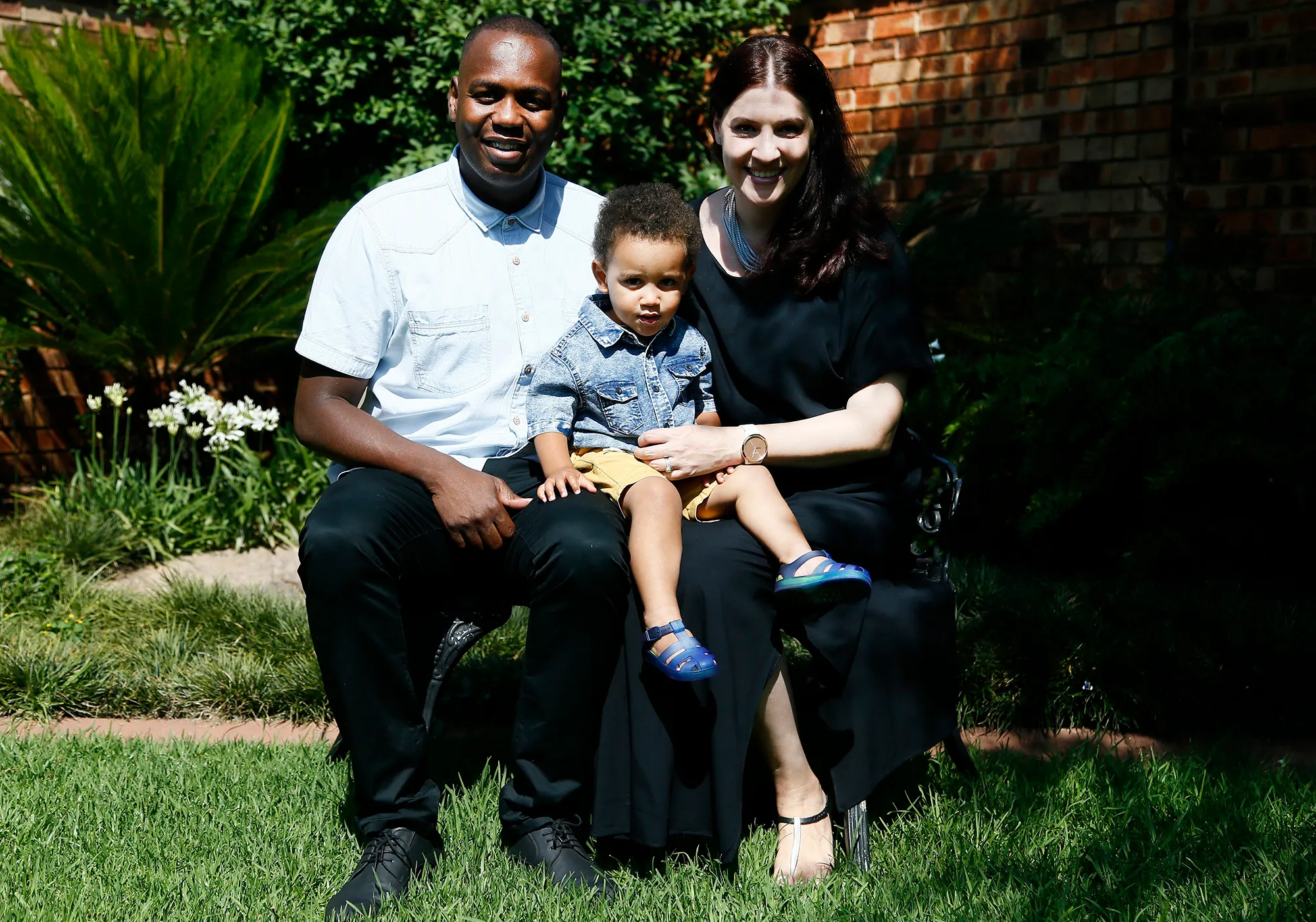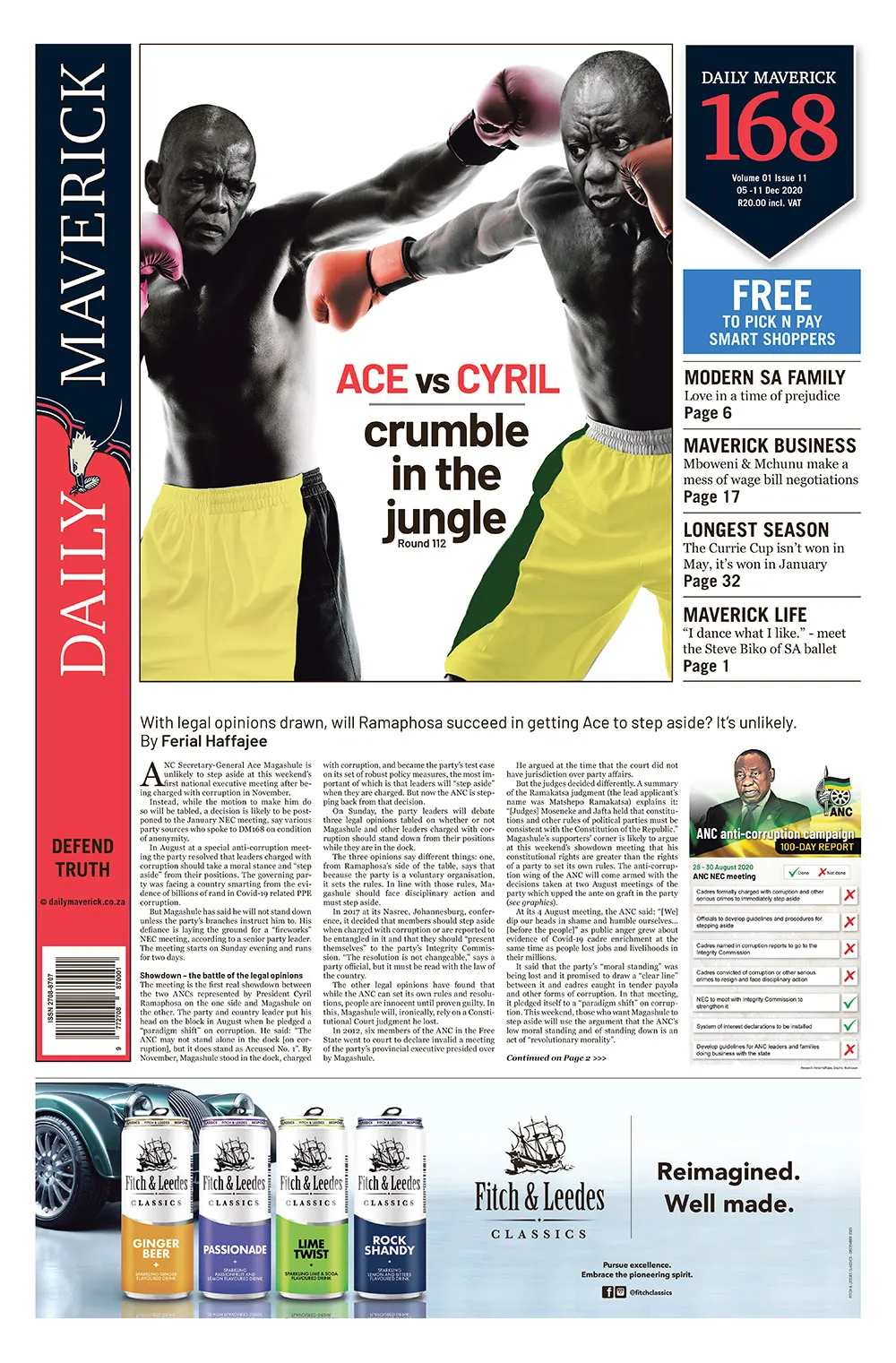DM168 Feature
Love in a time of hate and prejudice

One family’s adoption story tells the deeper truths of racism and intolerance in society but it’s also a hurrah for love that may still have the edge to conquer it all.
First published in the Daily Maverick 168 weekly newspaper.
The date 15 August is as ordinary a day as any other on the calendar – but not for Lucky du Plessis. It’s the day on which he celebrates his birthday, even though its unlikely to be the day on which he was born.
When Lucky recently told the Twitterverse how he got his birthday – and how a Tswana boy grew up to be a Du Plessis – the response showed that it was just the kind of tear-jerking good-news story that South Africans needed to hear that soggy Spring morning.
Chatting on the patio at his Florida home on Johannesburg’s western rim, Lucky fills in the gaps of his tweets. In broad strokes, it’s a story of adoption in a time of deep racial intolerance in the newest days of a democracy. In small details, it’s about how Du Plessis navigates a life of shallow assumptions and racial stereotypes.
Du Plessis is 33 today. He’s a graphic artist and radio DJ, currently host of a weekend show for East Coast Radio.
He starts his story with the reason why he decided to tweet about his adoption: “I was sitting at Sars for about the hundredth time trying to get them to change my name to ‘Lucky Du Plessis’. It’s the only government office that hasn’t got it right,” he says.
Quickly, his thread of tweets shifted from the frustration of revenue office queues to how he met his brother, Charl du Plessis, for the first time when he was five years old. Twitter responded with a flood of hearts and GIFs of joyful tears.
Rewind to the mid-1990s and Du Plessis describes his first day at school. He was the only black child enrolled at Laërskool Florida that year. “I remember looking out to a sea of white faces. The teacher said something in Afrikaans and there was just awkward silence. Then a kid at the back raised his arm and I went to sit next to him,” Lucky says of meeting Charl.

Lucky Du Plessis with his adopted mom Marikie on a family vacation to Disneyland in Orlando, USA. They first met when Lucky was in Grade 1 at Laerskool Florida. Photo: Supplied
Lucky describes Charl as a “wall of a child” – a giant, but so gentle he’d knock children down on the rugby field then stop play to check if they were okay. “They eventually had to tell him to stop doing that,” Lucky laughs of the friend who became his protector – and his brother.
Marikie du Plessis remembers the days of watching Charl playing with the only black child on the school playground as she waited in her car for her daughter to finish her sports activities. She didn’t think much of it as it was just children playing.
“One day it was raining and no one came to pick Lucky up so I said I’d drive him home,” says Marikie. She says Lucky didn’t know the way by car and where they ended up was a place where there were a lot of adults around but no one seemed to notice Lucky.
“Lucky started spending more and more time at our house and Charl would say things like ‘Lucky doesn’t have crayons’, or ‘Lucky also needs this or that’, so I just bought two of everything,” she says. It was at one of Charl’s birthday parties that Marikie realised it wasn’t “just stuff” that he didn’t have – Lucky didn’t have a birthday.
When Marikie asked him when his birthday was, Lucky told her: “I don’t know; the school hasn’t given me one.’’ Marikie’s enquiries at the school turned up sketchy details with no age, no birth date.
Lucky says the woman who was supposed to be his guardian was someone named Portia. Lucky’s memory of Portia was that she was a girlfriend of his biological father. When he was about four she put him on a train – he thinks from Kimberley – and told him his father would join them later. They ended up in Johannesburg, with Portia addicted to drugs and alcohol. Lucky never saw his father again.
“I just loved school because it meant I didn’t have to go home because I would just be cleaning, picking up beer bottles. Portia and I never spoke,” he says. He moved in with the Du Plessis family and Portia did not seem to care.
Marikie eventually took Lucky for a bone scan. Science was able to narrow down his age in years, but could only frame a possible date to within a few months.
“So I sat down with Lucky and we said we would take the middle point of the months they gave us and the middle day of that month – that’s how we got to Lucky’s birthday as 15 August. I think he’s very proud to have that birthday; so am I,” she says.
Official adoption followed when Lucky was 12 but Marikie says they were a family long before as he became her and Eric du Plessis’ fifth child.

Lucky du Plessis, his son Diego and wife Bianca at their home in Johannesburg. Photo: Felix Dlangamandla/Daily Maverick
As a Du Plessis, Lucky grew up rugby-mad like Charl and his dad, who died last year. He also could not speak a word of Tswana and very little English till he won a rugby scholarship to a English-language school.
But rugby and Afrikaans were not enough to fit in. Lucky and Marikie say they faced racism, intolerance and prejudice. Lucky was not “whiteenough” for some rugby camps. People from their church shunned them and the older Du Plessis children lost friends when their little brother moved in.
“My mom is pretty badass when it comes to defending her kids and Charl got into some fights for me. These days I still get it from all sides. Sometimes people will tell me I’m not a ‘real’ black person … or tell me, ‘You’re one of us’”, when he’s not interested in being a poster child for anyone’s agenda.
Lucky today is married to Bianca, who has Greek and Italian ancestry. The couple have 19-month-old boy, Diego. As an inter-racial couple, Lucky and Bianca say they do still “get the looks”, the judgement and the assumptions.
“I think there are people who just want the world to burn but that’s not what we’re about,” Lucky says. Both try not to be distracted by small-mindedness; humour helps too. Bianca says: “In some places we just don’t hold hands. And sometimes some men think we’re not together so they’ll buy me drinks and Lucky will say, ‘Great, bonus!’.”
Lucky says he and Charl, who is still his best friend, often tease their mother that, in marrying Bianca, the family dodged the “lobola bullet”. Avoiding a bride price paid in cows was another stroke of luck, exactly as you’d expect from a man determined to make the good days count. DM168
You can get your copy of DM168 at these Pick n Pay stores.




















 Become an Insider
Become an Insider
Comments - Please login in order to comment.